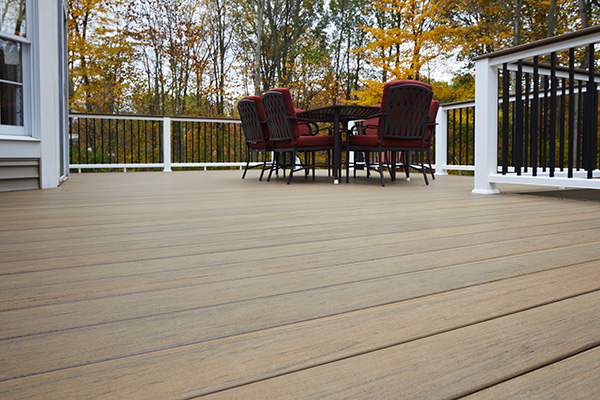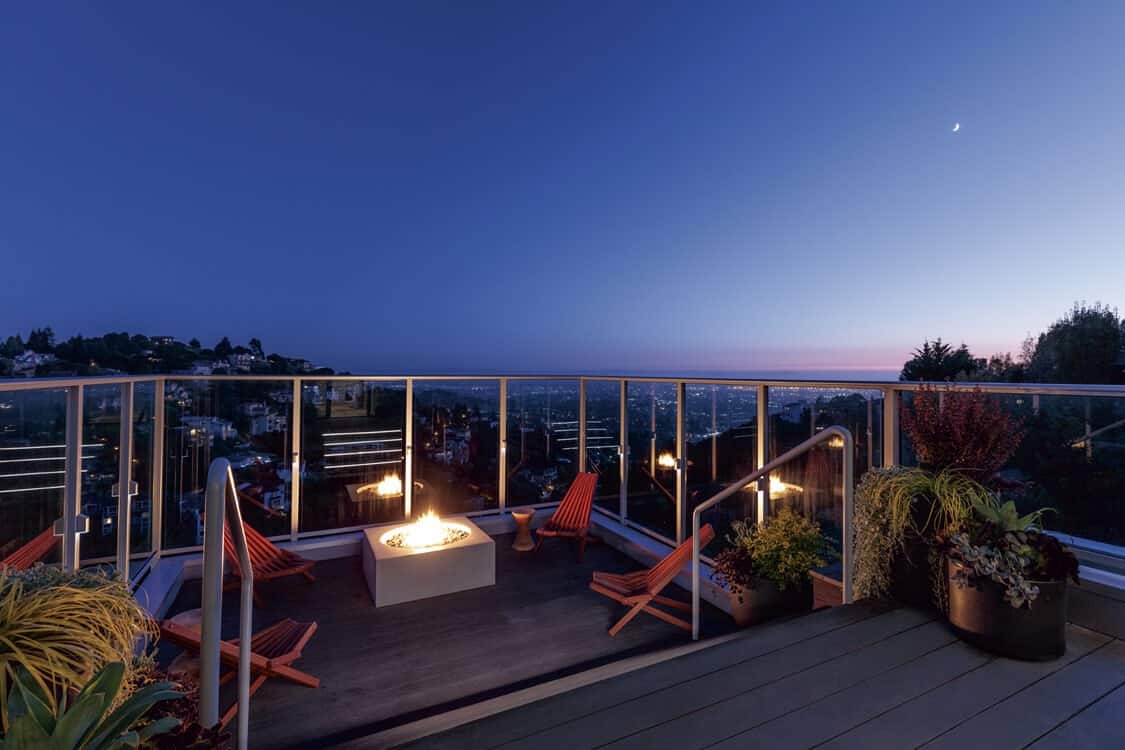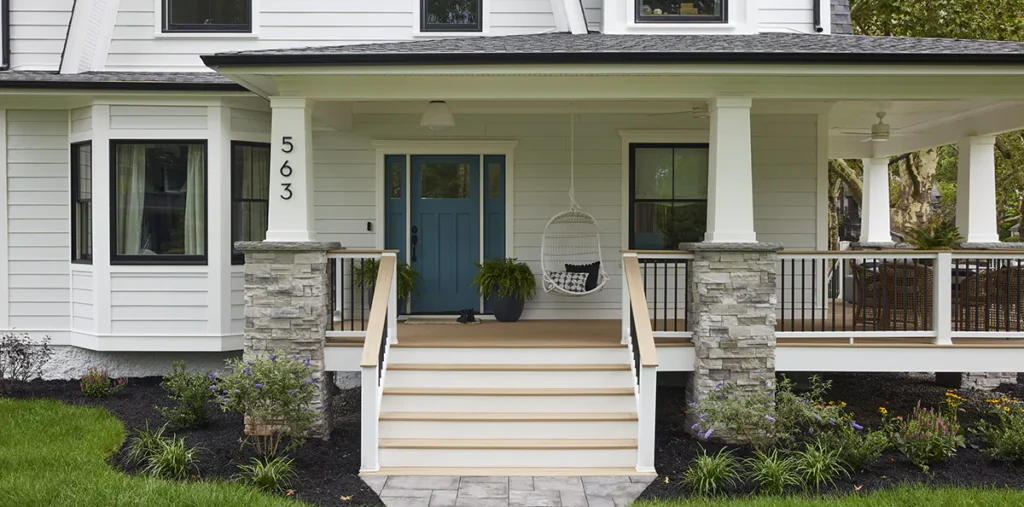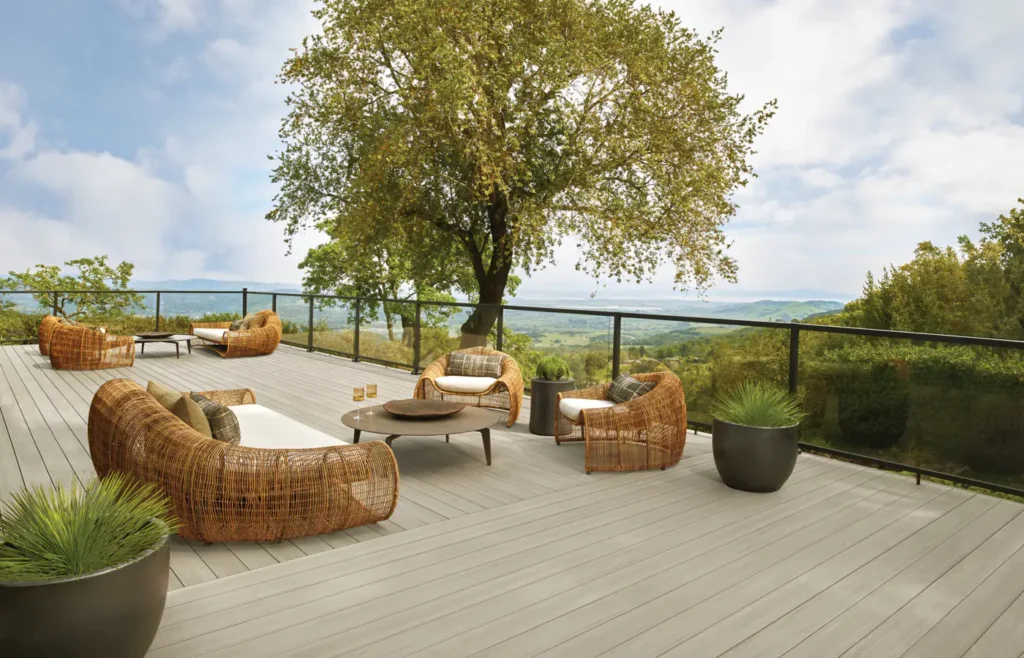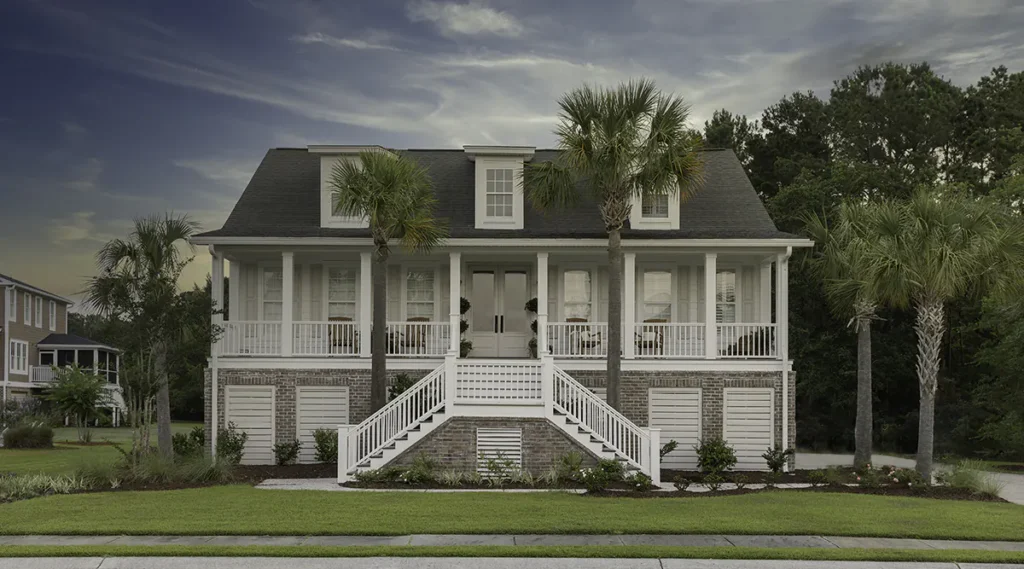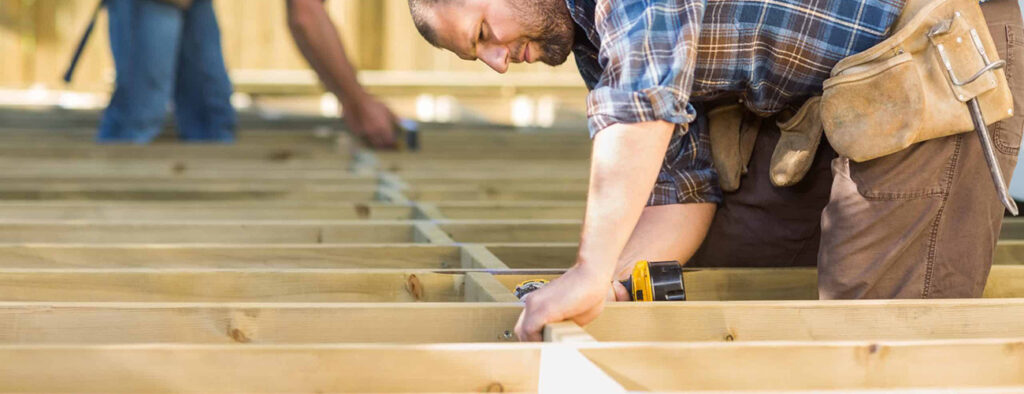Not sure about the difference between deck and patio? We can help. Decks and patios are both backyard features that function in a similar way: They give you and your family an outdoor living space to spend time on. Yet, there are key differences between them.
Deck
A DECK is an outdoor structure built from boards, capable of supporting weight, and supported by structural elements such as joists, beams, and posts.
Patio
A PATIO is a paved area directly on the ground that can be attached or detached from the house. Patios can be made of pavers, stone, concrete, or other materials.
Choosing Whether a Patio or Deck Is Right for Your Backyard
When deciding between a deck or a patio, first consider the size, shape, and layout of your backyard. Different types of backyards will influence whether a patio or a deck is a better choice.
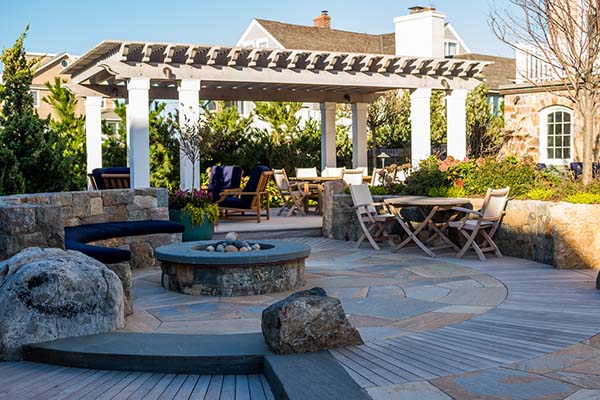
Backyards That Benefit From a Patio
Patios are ideal for backyards that:
- Have flat ground. Patios require flat ground to be installed. A hilly yard will require a costly foundation.
- Have a need for privacy. At ground-level, you can easily block neighbors’ views with tall plants or a privacy wall around the border.
Backyards That Benefit From a Deck
Decks are ideal for backyards that:
- Accommodates uneven surfaces. Decks are typically installed with four posts, which allows them to be level on an uneven surface.
- Have a view. Decks are often raised off the ground, giving them height that lends itself to great views.
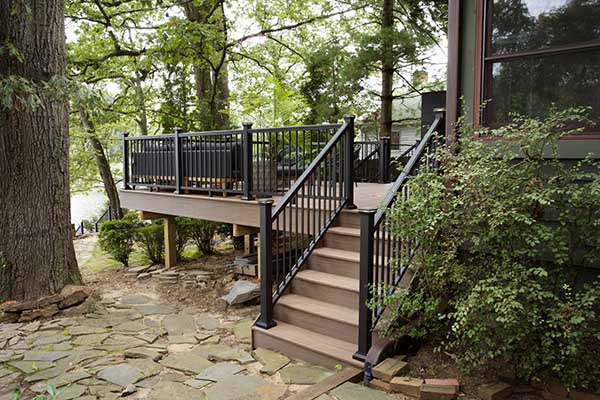
Note: Decks can be detached from the house, covered, or left open, so they work with a variety of home styles and backyard sizes.
Now that you understand the basic difference between deck and patio — and which one might work best for your space — it’s time to dive a little deeper.
Factors to Consider Before Deciding Between a Deck or a Patio
The difference between deck and patio goes beyond their structure and function. You’ll need to consider each in terms of performance, value for the cost, and aesthetics before making your choice.
Performance
The difference between deck and patio performance has to do with their durability and maintenance needs.
Patio: Durability With Flaws
Patios are typically made with concrete, pavers, or brick, all of which are highly durable materials that can last for 25 years or more.
However, patios are also vulnerable to certain problems, including:
- Cracking – Cracking often happens due to an uneven foundation and can worsen in areas with extreme weather.
- Staining – Concrete, traditional pavers, and brick are porous materials that will soak up pigments from spilled liquids and even fallen leaves, causing unsightly discoloration.
- Mold and mildew – Patio materials typically hold in moisture, creating the perfect environment for mold and mildew growth.
Patio Maintenance Needs
In order to keep your patio free of stains, mold, and mildew, regular cleaning with a pressure washer or garden hose is essential.
INTERESTED IN HIGH-PERFORMANCE, LOW-MAINTENANCE PAVERS?
TimberTech® Pavers deliver premium durability with mold & mildew resistance. EXPLORE.
Traditional Wood Deck: Limited Performance
Traditionally, decks are made of pressure-treated lumber, an organic material that is highly vulnerable to moisture and weathering. If properly cared for, an average deck lifespan is about 10 to 15 years, with regular maintenance work.
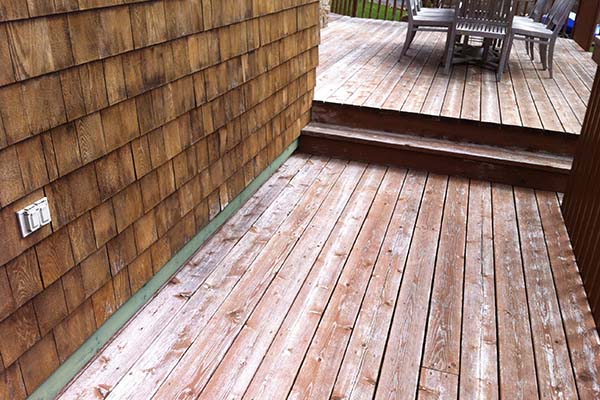
Common Problems With Traditional Wood Decks
- Rot, mold, and mildew growth from moisture damage.
- Fading and staining from UV rays and spilled liquids.
- Cracking, splintering, and warping from rapid moisture penetration and evaporation.
Deck Maintenance Needs
Traditional wood decks demand maintenance nearly every year, from cleaning with harsh chemicals to sanding, staining, and sealing.
Value for the Cost
Value is about more than what you pay upfront — it’s also about long-term costs and value, including for maintenance and your home’s resale value. Discover the value difference between deck and patio to help inform your decision.
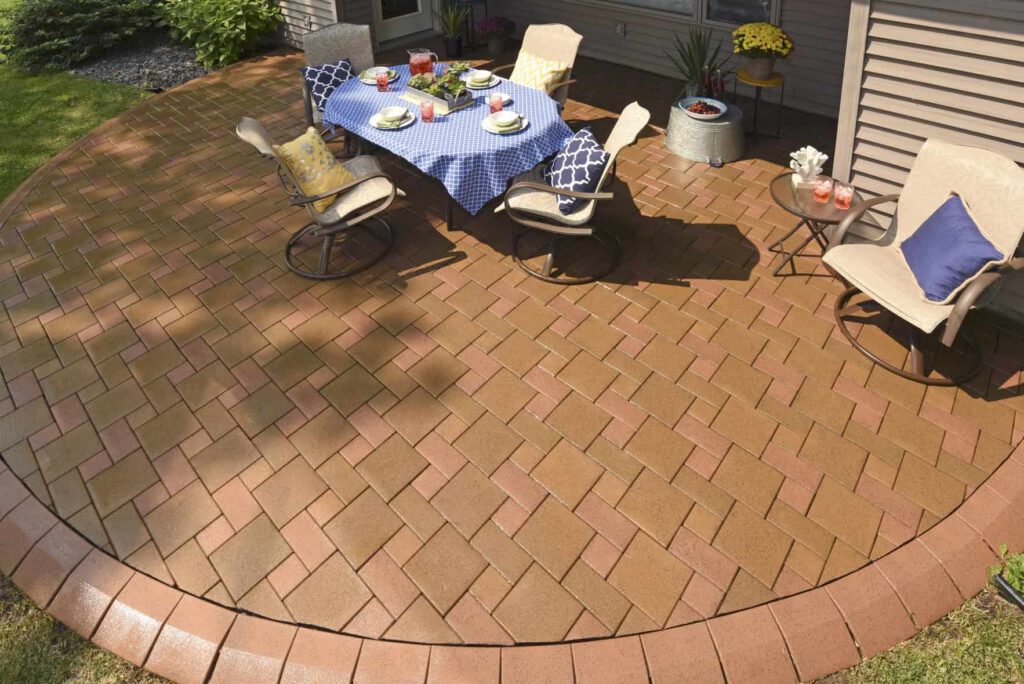
Patio: Costs & Value
Upfront Costs: Often costs less to build than a deck, thanks to a lower material costs.
Maintenance costs: Low, thanks to minimal maintenance needs.
Resale value: Low return on investment: usually less than 50%.
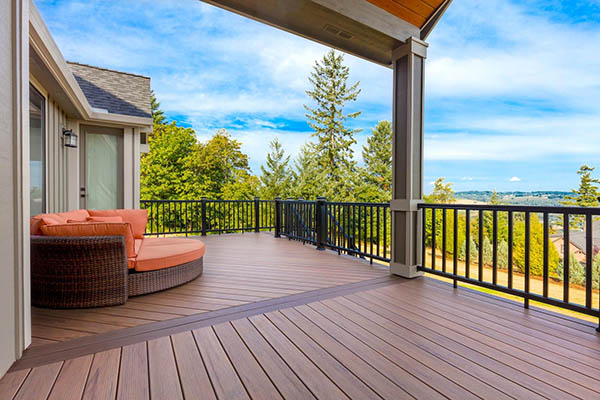
Deck: Costs & Value
Upfront costs: Deck cost varies significantly based on several factors.
Maintenance costs: High for a wood deck, which requires costly maintenance. Comparatively much lower for a composite deck.
Resale Value: High return on investment: 60% to 80% ROI as long as the deck is in good condition.
Aesthetics
Aesthetics play an essential role in the look and feel of your outdoor living space. The aesthetic difference between deck and patio has to do with their materials.
Patio: Cold & Flat
The hardscaping materials of patios are surprisingly versatile and can be poured or arranged into almost any shape. However, keep in mind that concrete and many stones can give your backyard a cold, flat look you’ll need to get creative with (and spend a bit more on) to pretty it up.
Traditional Wood Deck: Beauty That Fades
Decks made from pressure-treated lumber may give you rich, natural wood colors and textures when first installed. But there’s a catch.
Those original wood deck colors will inevitably fade in time.
Even with routine maintenance.
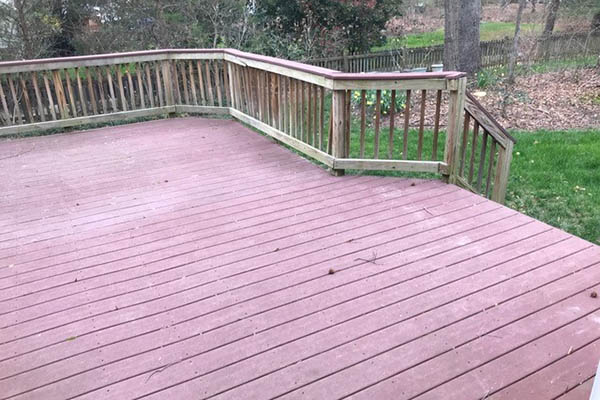
A Better Choice: TimberTech® Composite Decking
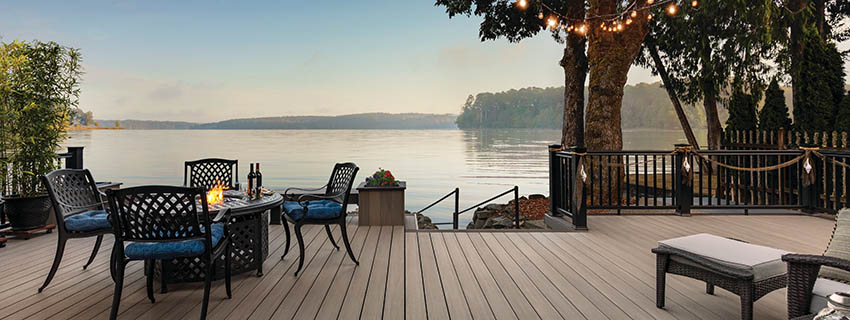
Want the beauty of a traditional wood deck with even fewer maintenance needs than a patio? Choose TimberTech® composite decking.
Performance
- Made of highly durable materials.
- Mold- & mildew-resistant thanks to protective capping.
- 25-, 30-, and Lifetime Limited Product Warranties.
Value for the Cost
- Long-term cost savings thanks to premium durability.
- Minimal maintenance needed.
- High resale value, thanks to enduring beauty.
Aesthetics
- Nature-inspired real wood looks, from authentic hardwood to painted wood aesthetics.
- 25-, 30-, and 50-Year Fade & Stain Limited Warranties.
Now that you understand the difference between deck and patio — and see the benefits of a TimberTech composite deck — it’s time to get started planning your perfect outdoor living space. Connect with a TimberTech expert or a local contractor to discuss questions, concerns, and ideas for your backyard.


